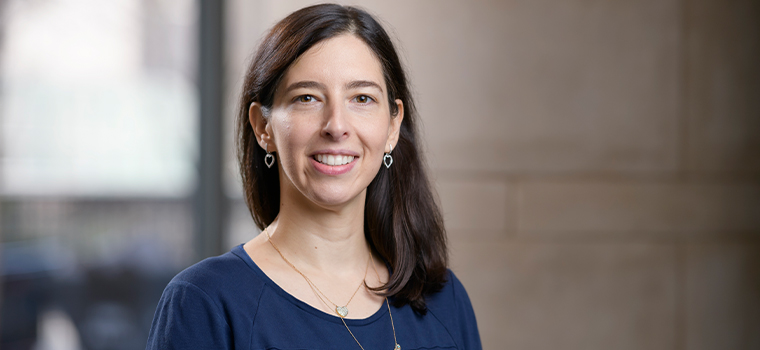How a Hunch Became a Potential Kidney Cancer Breakthrough

Memorial Sloan Kettering Cancer Center (MSK) has a rich history of innovation in immunotherapy, which boosts the natural ability of a person’s immune system to seek and destroy cancer cells. Our investigators played a pioneering role in developing an approach called chimeric antigen receptor (CAR) T cell therapy, a type of immunotherapy that involves genetically modifying a patient’s own immune cells in the laboratory to recognize a protein on cancer cells. The modified cells are then multiplied and returned to the patient to find and kill cancer throughout the body.
While CAR T cell therapy has revolutionized treatment for people with blood cancers like leukemia and lymphoma, it has not yet achieved the same success in treating solid tumors. The main barrier has been the difficulty for researchers to select a protein to target that is expressed on all tumor cells but not on healthy tissues. “You risk incomplete eradication of the cancer and causing unacceptable toxicities,” says Sophie Hanina, BMBCh, PhD, a senior research scientist at the Sloan Kettering Institute, a hub for foundational biology research at MSK, who is spearheading the development of a new cell therapy for renal cell carcinoma (RCC). The most common type of kidney cancer, RCC often stops responding to treatment or comes back. Recognizing the urgent need for new treatments, MSK Trustee Kiran Mazumdar-Shaw established the Mazumdar-Shaw Translational Research Initiative in Kidney Cancer Research in 2022. The initiative supports clinical trials and translational research, including Dr. Hanina’s investigations that aim to improve treatments for kidney cancer.
Dr. Hanina’s work focuses on targeting a protein called CD70, which is often found in kidney cancers and is absent in healthy kidney tissue. However, because the expression of CD70 is extremely variable in the tumors, solid tumor clinical trials that have targeted this protein have not seen curative results — a stumbling block that extends to many CAR T trials for solid tumors.
Dr. Hanina thought up a possible solution. “I had a hunch that even though a tumor looks like it’s negative for CD70, it might not be negative at all,” she explains. “It might retain ultra-low levels of CD70 that we’re not able to detect with conventional methods.”
But this would also mean that CD70 levels are so low that conventional CAR T cells would not see and kill the cancer cells, which may explain why CAR T cells have not worked so far in solid tumors like kidney cancer. In the lab of Michel Sadelain, MD, PhD, a pioneer of CAR T cell therapy, Dr. Hanina tested this hypothesis using a more sensitive receptor developed at MSK called an HLA-independent T cell receptor (HIT). “The HIT receptor is the next generation of CAR T cells,” says Dr. Hanina. “It’s programmable like a CAR T cell but has the enhanced sensitivity of a T cell receptor.”
Her hypothesis was correct: Tumors that appear negative did retain low levels of CD70. And in laboratory models, the HIT receptor was able to target these tumors and eliminate them. Dr. Hanina is now working to translate her findings to the clinic, with a phase 1 clinical trial set to begin in collaboration with MSK urologic surgeon A. Ari Hakimi, MD, and genitourinary medical oncologists Ritesh Kotecha, MD, and Robert Motzer, MD, Jack and Dorothy Byrne Chair in Clinical Oncology, who leads the Kidney Cancer Section in the Genitourinary Oncology Service. This trial will test CD70 HIT T cells in patients with advanced RCC that persists even after receiving other treatments.
An effective cellular therapy for kidney cancer could usher in a new treatment option for many people with the disease. And because CD70 is expressed in at least 20 different solid tumors, this therapy could work in many other cancer types, bringing more hope to countless patients at MSK and beyond.
“Philanthropy accelerated the project,” Dr. Hanina says, crediting the Mazumdar-Shaw Translational Research Initiative in Kidney Cancer Research in her ability to pursue this line of work. “It gave me the freedom to go after my hunches, and that was really amazing.”